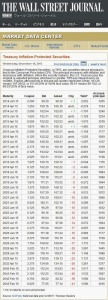We invest in a bond fund but I often think that I'd like to get involved with individual bonds, whether corporate or municipal or both. I know little to nothing about the process of choosing and purchasing individual bonds. How do you go about it? Where do you search and what do you look for? What criteria do you use to select the bonds? And then how do you actually purchase them? Should they be in taxable or tax-sheltered accounts ideally?
Any info you can share would be great.
Any info you can share would be great.



Comment